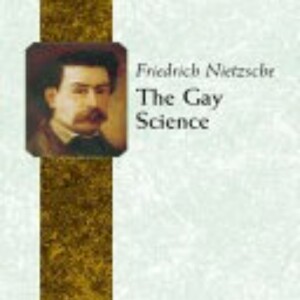

The Gay Science: A Summary of Nietzsche’s Philosophical Insights
"The Gay Science" ("Die fröhliche Wissenschaft") is a philosophical work by the German philosopher Friedrich Nietzsche, first published in 1882. It was one of the most significant works of his early career, and it reflects many of the themes that would dominate Nietzsche's later philosophy.
Author's Background
- Friedrich Nietzsche (1844-1900): Nietzsche was born in Röcken, Prussia (now part of Germany), and he was raised in a religious household, closely tied to Lutheran tradition. He studied philology at the University of Bonn and later at the University of Leipzig. Nietzsche’s academic career was cut short by health problems, and he eventually left his teaching position to focus on writing.
- Philosophical Context: Nietzsche's thought developed during a time of significant cultural and intellectual upheaval in Europe. The 19th century was marked by growing skepticism toward traditional metaphysics and religion, particularly in the aftermath of the Enlightenment. Nietzsche's philosophy is often seen as a response to the decline of Christianity's influence in Western culture and the rise of secular humanism and scientific rationality.
- Personal Struggles: Nietzsche's life was marked by personal struggles with mental and physical health. His later years were particularly troubled, culminating in a mental breakdown in 1889. Despite these challenges, his writing flourished, and he managed to produce some of his most important works during the late 19th century.
Book's Context
- Cultural Environment: "The Gay Science" emerged during a time of significant transformation in European thought, including the development of modernity, industrialization, and the questioning of traditional values. Nietzsche's work reflects his engagement with contemporary philosophical movements, such as existentialism, positivism, and romanticism.
- Content and Themes: The book is notable for its exploration of concepts such as the "death of God," the affirmation of life, and the critique of morality. Nietzsche employs a style that combines aphorisms, poetry, and prose to convey his philosophical ideas. Key themes include the celebration of individual creativity, the critique of nihilism, and the idea of amor fati ("love of fate"), where one accepts life’s challenges and uncertainties.
- Philosophical Innovations: "The Gay Science" can be seen as an early articulation of Nietzsche’s ideas about the will to power and eternal recurrence, which would be further developed in his later works. It emphasized the importance of joy, laughter, and appreciation of life in the face of suffering and existential nihilism.
- Literary Impact: The book played a crucial role in establishing Nietzsche as one of the leading figures in philosophical literature. Its influence extends beyond philosophy into broader cultural discussions, impacting literature, psychology, and the arts well into the 20th and 21st centuries.
In summary, "The Gay Science" is a rich and complex work that encapsulates Nietzsche's philosophical outlook and critiques of contemporary society, reflecting both his personal struggles and the broader cultural currents of his time. It remains a significant text for anyone studying philosophy, literature, and the development of modern thought.
Chapter 2 Analysis of main characters and plot"The Gay Science" (originally "Die fröhliche Wissenschaft") by Friedrich Nietzsche is a philosophical work rather than a traditional narrative with characters and a plot. Instead, it is structured around a series of aphorisms, poems, and essays that explore themes of joy, art, science, and the nature of existence.
Here are some key concepts and themes that serve as the core "characters" and clues in the development of the work:
- The Übermensch (Overman): This concept represents an ideal individual who transcends conventional morality to create their own values. Nietzsche urges readers to embrace life and personal creativity, rather than adhering to societal norms.
- Eternal Recurrence: Nietzsche introduces the idea that one should live as if they would have to relive their life repeatedly in exactly the same way. This idea challenges readers to assess how they live and the choices they make.
- Joy and Affirmation: The title "The Gay Science" itself refers to a joyful approach to life, emphasizing the importance of embracing existence with enthusiasm, despite its inherent struggles.
- Critique of Religion and Morality: Nietzsche critiques traditional religious beliefs and moral systems, arguing they can lead to life-denying attitudes. He emphasizes the need to reevaluate values to create a more life-affirming philosophy.
- Art and Creativity: Nietzsche celebrates art as a vital means of expressing human experience and as a way to find meaning in life. He views artistic creation as a form of self-overcoming.
- The Role of Knowledge: Knowledge and science are depicted as tools for liberation and empowerment, but Nietzsche warns against becoming overly reliant on them to the detriment of individual creativity and emotion.
Overall, "The Gay Science" encourages readers to embrace a joyful, creative, and life-affirming philosophy that challenges them to reexamine their values and the essence of existence. The philosophical ideas presented serve as key "characters" that guide the reader in understanding Nietzsche's vision of a fulfilling life.
Chapter 3 Theme Exploration and AnalysisFriedrich Nietzsche's "The Gay Science" (Die fröhliche Wissenschaft), first published in 1882, is a significant and complex work that explores several profound themes and topics. Here are some of the key themes:
- The Celebration of Life and Joy:
Nietzsche emphasizes the importance of living life to the fullest and embracing joy. The book encourages a perspective that finds happiness and meaning in existence despite its inherent struggles and absurdities. The phrase "gay science" itself implies a sense of lightness, joy, and a lively approach to philosophical inquiry.
- The Doctrine of Eternal Recurrence:
One of the most provocative ideas Nietzsche presents is the notion of eternal recurrence, which suggests that life repeats itself in the same way infinitely. He challenges readers to consider whether they would affirm their life as it is, with all its suffering and joy, if they had to live it over and over again. This thought experiment places a premium on the way individuals choose to live their lives and their capacity to embrace their existence affirmatively.
- Critique of Traditional Morality:
Nietzsche critiques conventional moral values, which he sees as life-denying. He distinguishes between "master morality" (values established by the noble, strong individuals) and "slave morality" (values developed by the weaker classes as a reaction against the powerful). This theme examines the impact of these moral systems on personal freedom and authenticity.
- The Role of Art and Aesthetics:
Art plays a crucial role in Nietzsche's philosophy, serving as a means of expressing and experiencing life. He argues that art and creativity allow individuals to confront the chaos of existence and find beauty in it. This theme reflects Nietzsche’s belief that aesthetic experiences can provide deeper insights into truth and existence than traditional philosophical or scientific approaches.
- The Death of God:
In "The Gay Science," Nietzsche famously declares that "God is dead," a metaphorical expression for the decline of traditional religious and metaphysical frameworks in the modern world. This theme explores the consequences of losing a definitive source of meaning and the resulting existential crises that individuals may experience. It prompts the exploration of new values and meanings in a godless world.
- Individualism and Self-creation:
Nietzsche champions individualism and the idea of self-creation. He advocates for individuals to break free from societal norms and expectations to form their own identities and values. This theme emphasizes the importance of personal authenticity and the courage to forge one’s own path.
- Knowledge and Truth:
Nietzsche’s exploration of truth is multifaceted. He challenges the idea of objective truth, suggesting that knowledge is always interpretation and perspective. The book discusses the limitations of human understanding and the various ways individuals can approach the concept of truth, including the acknowledgment of life’s inherent uncertainties.
- Perspectivism:
Related to his views on truth, Nietzsche introduces the concept of perspectivism, which posits that all knowledge is a matter of perspective. He argues that there are no absolute truths, only interpretations shaped by individual experiences and beliefs. This theme encourages a more pluralistic understanding of different viewpoints and philosophies.
- The Übermensch (Overman):
Though more fully developed in later works, the idea of the Übermensch emerges in "The Gay Science." Nietzsche introduces this concept as an ideal for humanity—an individual who transcends conventional morality to create their own values and meaning. This reflects his vision of personal and cultural transformation.
- The Nature of Suffering:
Nietzsche does not shy away from discussing suffering. He views it as an integral part of life and a necessary condition for growth and creativity. Instead of despairing at suffering, he encourages embracing it as a catalyst for personal development and deeper understanding.
In summary, "The Gay Science" is a rich tapestry of ideas that invites readers to reflect on the nature of existence, the formation of values, the role of suffering and joy, and the possibilities for individual self-realization in a world devoid of absolute truths. Nietzsche’s call for joyous affirmation of life remains a central tenet of his philosophy and continues to resonate with contemporary audiences.
Book https://www.bookey.app/book/the-gay-science
Author https://www.bookey.app/quote-author/friedrich-nietzsche
Quotes https://www.bookey.app/book/the-gay-science/quote
Suggested
Youtube https://www.youtube.com/watch?v=Hq_oiMDDUK0
Amazon https://www.amazon.com/Gay-Science-Prelude-Rhymes-Appendix/dp/0394719859
Goodreads https://www.goodreads.com/book/show/94578.The_Gay_Science
More Episodes
All Episodes>>Create Your Podcast In Minutes
- Full-featured podcast site
- Unlimited storage and bandwidth
- Comprehensive podcast stats
- Distribute to Apple Podcasts, Spotify, and more
- Make money with your podcast












